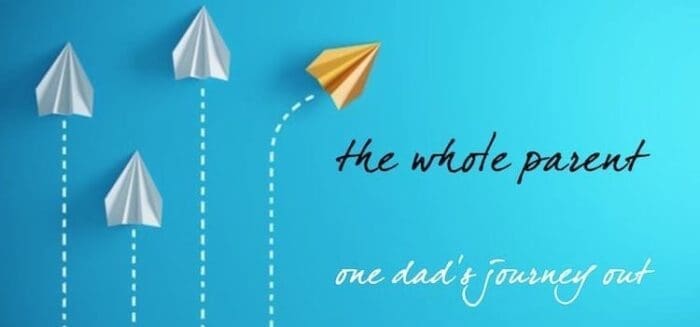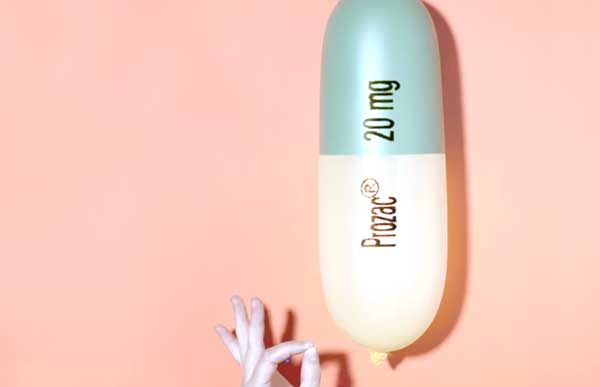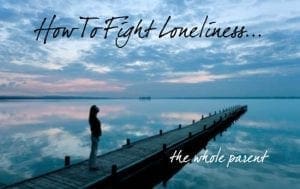I had an interesting discussion with a friend a few months back who was talking to me about their process of recovery and healing. The conversation moved at some point to me and my path. I discussed depression, recovery, mindfulness, and my own journey back to whole health. At one point, this lovely person said,
“Well, why are you still taking meds? If you just healed your trauma you wouldn’t need meds. They’re like a tranquilizer that keeps you from feeling your actual feelings.”
I almost said, “Bless your heart.”
My Experience of Depression
No two depressions or people with depression are alike. That said, there are a number of “features of depression” that are quite common among most sufferers. And there are a number of misconceptions among well-meaning, “non-experienced,” people that look a bit like the conversation above. Here’s something I know about depression: unless you’ve suffered from depression, your ability to diagnose it or suggest remedies or healing are unwelcome. And they come across as ignorant. My friend wasn’t ignorant. But they did not have the slightest clue about depression.
Features of Depression
- Sadness
- Laziness
- Hopelessness
- Lack of energy
- Flu-like exhaustion
- Catastrophic ideation about the near future
- Isolating
- Sleeping as much as possible
And all of us have experienced these “features” of depression. Here’s the difference. When I’m heading down my death spiral into depression, there is not a single remedy that can stop my crash. I can begin my anti-depressant regime as soon as I notice the symptoms. I can take all the precautionary actions: eat well, sleep well, no alcohol, no substances, sunlight, and exercise. And still, the slide into black death continues.
When a person is depressed their bodies can fool them into thinking they have the flu. We can believe that sleeping is the best thing for us. We can stop taking or returning phone calls because we don’t want to be seen when we’re stuck in our own veil of darkness. We want to isolate. And it’s the worst thing we can do. Being alone and being depressed at the same time… Well, this can be the setup for a tragic attempt to end the pain through ending our lives. If you’ve been there, please let me know you are getting the help and support you need.
We Need To Stay Engaged
Isolation is my killer. In the past, when suffering from a deep and extended depression, I was making gestures towards suicide. I didn’t really want to do it. I didn’t really think I was going to follow through on my acting out. But I did hike up to the lookout point and contemplate my leap. I couldn’t do it. I’m afraid of heights. But I wanted to check it out.
When I’m hunkered down in my isolation phase, I know there are a few things I can do to help myself. I can go to al-anon meetings and make myself get out of the house. (In-person meetings also offer hugs at the end.) I can call a friend who’s in my circle of support. I can say yes to events I’d really rather not attend. I can make myself connect with others. I can prevent my dark mood from isolating me into my dark room in my dark house. Darkness and isolation is where bad things happen.
What my friend didn’t understand about depression. It may be related to trauma or unresolved issues in our past. It may have a chemical aspect to it that only responds to a chemical solution. (Meds) The anti-depressants don’t numb anything. Numbness is part of depression. Anti-depressants help lift me out of my numbness. They help give me the energy to get out of bed and take a shower. They can keep me from collapsing through the floorboards of the basement into hell. Anti-depressants don’t prevent my depressions, but they can soften them a little. And my decision to remain on them when I’m well is one that I have experimented with for years.
The Dawn of My Depression Diagnosis
I’ve had clinical variations of depression since I was a freshman in high school. At 15-years-old I shipped off to Exeter New Hampshire to attend one of the best high schools in the country. It was a brilliant ploy of my mom’s to get me out of reach of my raging alcoholic father. It was an escape for me, from the heaviness of weekly visits or phone calls, that often turned bitter. But it was also a complete freefall from everything I knew.
I have written about this extensively here How My Bipolar Depression Showed Up in High School
And what I’ve learned in the last fifty-or-so years since then forms a lot of how I live and manage my life today. What my friend could not have known is how depression not only changes how you think, it physically changes the chemistry and functioning of my body. And while this was more dramatic in my teenage years and early twenties, it can still wreak havoc in my adult life. In fact, if I were honest about it, I’d admit that my depression is what caused my then-wife to give up on our partnership. It was a lot about her depression and her family of origin too, but my part of the dynamic was my debilitating depression.
In his amazing work Ordinarily Well, Dr. Peter Kramer talks about the failure of SSRIs (Prozac > Lexapro > Trintellix) to cure depression. But they did finally prove that over time, depression causes some physical changes in the stress response of people’s nervous and endocrine systems.
When my brain heads down the cold sweats of depression, things change for me that is not part of an average “sad” experience. What my friend was referring to was trauma and healing, and dysfunction and sadness related to that struggle. What they could not have known was how depression and trauma are related but different. If only anti-depressants were actually “happy pills.” How much easier this life would be for so many of us.
Living Within the Limits of my Depression
I have to set limits these days. My creativity knows no bounds, and when I’m UP on the high of a creative jag, I have a number of counteractive measures I have to take to keep myself from bouncing off the satellites. When I’m on a particularly good run of creative energy, I also begin paying strict attention to how much sleep I’m getting, how much coffee I’m drinking, how well I am paying attention to, and getting my day job work done. When it is good, I can keep the balance running for weeks at a time. When it’s bad (when I was younger) I might stay up several nights in a row thinking I was onto some vein of gold, but I would end up crashing and burning into a dark low. My body would simply cut out. The energy and adrenaline would drop and I would need sleep, lots and lots of sleep.
I keep myself out of that cycle of huge ups and terrible downs. This is the creative cycle, yes, but with a bipolar diagnosis, this is also the way to self-destruction. So I can take a little of the SSRI now, even while I’m doing GREAT, and that helps keep my energetic system running fine. I don’t think of it as an anti-depressant at this point. It’s more like a vitamin that helps me produce or keep more serotonin in my system. I wish it made me happy or high, but it does not. I am happy that it gives me some flexibility for living within my range of high-to-low emotions while keeping me within the guardrails.
Whatever you know about depression, make sure you only talk about your own experience and don’t try to prescribe or preach to others about their tranquilizing meds or how they can treat or get over their depression. My depression is nothing like yours. My friend had no idea what they were talking about. Trauma, sure, their own experience. Healing, sure, again their own experience. Depression, not the slightest clue.
I’m here to talk whenever you need me.
Namasté,
John McElhenney – life coach austin texas
Facebook | Instagram | Pinterest | @wholeparent
Related Posts:
- How My Bipolar Depression Showed Up in High School
- Dark Days (the depression archives)
- Our Daily Grind: How Do You Trend Up or Down During the Day?
- In the Birthday Cake of the Present Moment You Have Three Choices
- Emotional Variability: Healthier Living Through Mindful Awareness
Reference:
- Ordinarily Well: The Case for Antidepressants – Dr. Peter D. Kramer
- Against Depression, ibid
- Listening to Prozac, ibid
- Single Dad Seeks: Dating Again After Divorce: Advice and Strategies on Learning How to be Loved Again
- Fall of the House of Dad: My journey through divorce, from loss to joy, again and again
- A Good Dad’s Guide to Divorce: One father’s quest to stay connected with his children
- The Sex Index: Getting Our Love Languages Right in the Bedroom
- Here Comes the Darkness: Surviving and Thriving After a Mental Illness Diagnosis
- The Third Glass: When Drinking Becomes an Issue
- The Storm Before the Divorce: When One Parent Wants Out, That’s the End
- Dating 2.0: Aiming for the Love of Your Life




